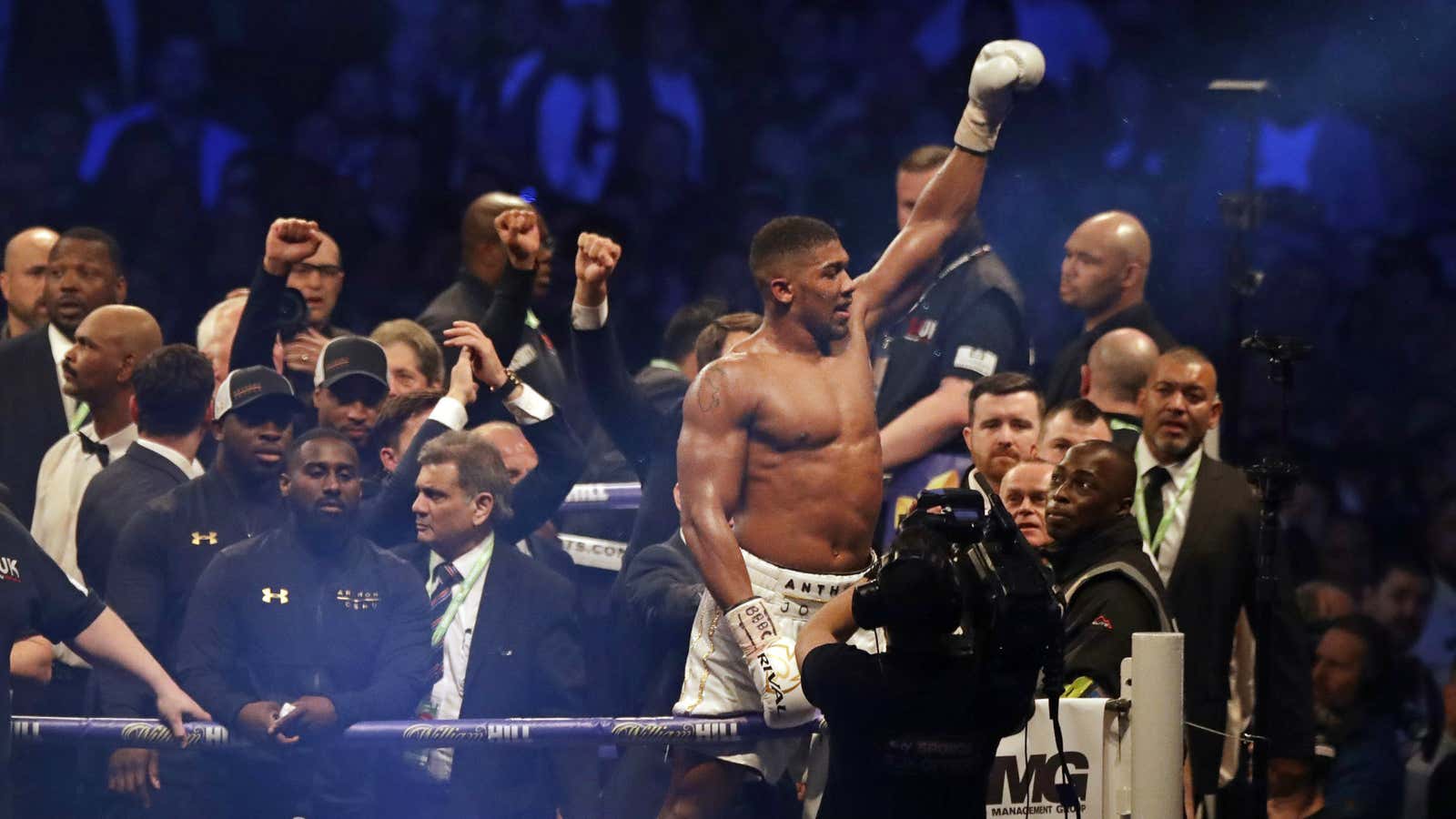It could have all turned out differently for Anthony Joshua, the new world boxing heavyweight champion.
Back in 2008, Joshua, then a greenhorn boxing hopeful, harbored lofty ambitions to compete on the international stage. Born in Watford, 16 miles north of London, to parents of Nigerian origins, he contacted Nigeria’s boxing federation about possibly representing the country at the 2008 Beijing Olympics and was invited for a trial, according to a story by ESPN. But after arriving late, with trials already wrapped up, Joshua was rejected and his short career as a Nigeria boxer ended before it even started.
But after defeating Wladimir Klitschko in London late on Saturday (Apr. 29) to win the WBA and IBO heavyweight titles, in addition to his IBF title, many Nigerians couldn’t help but wonder if, had events in 2008 turned out differently, Joshua could have been fighting for Nigeria instead.
For his part, Obisia Nwankpa, Nigeria’s boxing coach at the time, was unapologetic about rejecting Joshua in an interview ahead of his championship fight . ”I would do it again because we must always do things the right way,” said the coach.
Joshua’s rejection was a little unusual. Typically, foreign-born African athletes from countries with better resources and training facilities are readily welcome to represent the country of their birth or parents’ birth. In Nigerian soccer, the national team coach has been criticized for ignoring home-based professionals and inviting less experienced foreign-born players instead. In France, thanks to a change in FIFA rules, national youth team players of African origins, trained at France’s expense, have increasingly decided to represent their parents’ countries at the senior level.
With hindsight, it’s difficult to say if Joshua would have done as well if he’d been representing Nigeria but history suggests that would not be the case. Over the years, several homegrown athletes have switched allegiances citing poor management and sub-par training facilities. Francis Obikwelu, the current European 100 meters record holder, switched allegiance to Portugal after Nigeria’s athletics federation neglected to cover medical bills for an injury sustained while representing Nigeria at the 2000 Olympics.
It’s not just a Nigerian thing either. At the 2016 Olympics in Rio, at least 30 Kenyan-born athletes represented other countries. Similarly, half of Bahrain’s Olympic track field team was almost entirely made up of Africans.
